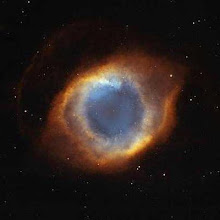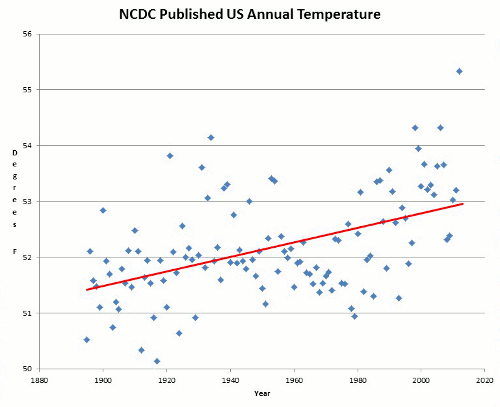It has been said that nothings sells newspapers like Bad News. In fact studies have been conducted and found that media sales actually do drop on good news cycles. Bearing that in mind then is it any wonder that just about all aspects of the media (both mainstream and not) have been keen to post a daily deluge of stories from either scientists or politicians who use or promote alarmism as their modus operandi. Scientist who promote an more sceptical or pragmatic view are rarely printed (not because they are necessarily wrong), but because good news doesn’t sell. Many in the media also display an open bias when conducting interviews either by only representing the believers side of the story, by stacking panels with a great many advocates for AGW against maybe one sceptic and then limit the sceptics ability or time to respond to issues raised ,or indeed by publicly denigrating the sceptic before and during the interview.
According to Professor Bob Carter in his November 2008 article “The Futile Quest for Climate Control” on the topic of the media he wrote:
The climate change hysteria in the media has a life of its own. Ask a web search engine to supply you with references to “global warming” and it will provide a daily haul of ten to twenty alarmist newspaper articles from throughout the world. Many of these stories have as their basis real scientific results from real scientists, but by the time the results been processed through public relations staff and compliant media commentators, the result is group-think, political correctness and frisbee-science of the high order. A scan through headlines alone, which range from the silly to the ridiculous, will remove any doubt that the media treatment of climate change is unbalanced. Reading the articles themselves simply serves to confirm intentional scaremongering and breath taking scientific ingenuousness.
Alarmist climate writing invariably displays one or more of three characteristics. First, it may be concerned with the minutiae of meteorological measurements and trends over the last 150 years in the absence of a proper geological context. Second, it may raise alarm about things that are known to change naturally irrespective of human causation, such as ice melting, sea level change and changes in species’ ranges. Third, there is an almost ubiquitous over reliance on the outputs of unvalidated computer model projections – that is, untestable virtual reality is favoured over actual real world data.
On top of such slanted reporting, and in service of the third example just given, weasel words have become an invaluable aid for engineering public alarm about global warming. “If”, “might”, “could”, “probably”, “perhaps”, “expected”, “projected” , “modelled”…Wonderful words, so wonderful that journalists and other writers scatter them throughout their articles on climate change like confetti. The reason is that – in the absence of hard evidence for damaging human-caused climate change- public attention is best captured by making assertions about “possible” change. Using computer models in support, virtually any type of climate hazard can be asserted as a possible future change.
….The British commentator Melanie Phillips summarised it well:
“The way global warming is being reported by the science press is a scandal. In selecting only those claims that support a prejudice and disregarding evidence that these claims are false, it is betraying the basic principles of scientific inquiry and has become instead an arm of ideological propaganda.”
Finally, for all the problems listed above, and much to the outrage of warming alarmists, it should be acknowledged that a handful of quality newspapers do provide a more balanced public discussion of global warming issues. Such papers include the “Wall Street Journal”, the London “Telegraph” stable, the Canadian “National Post”, the Melbourne “Business Age” and “The Australian”. These publications, and a few others, are playing a vital role in keeping the public informed of both sides of the climate change issue. Tellingly, however, no Australian television station comes even close to providing equivalently balanced commentary; and neither does that paragon of broadcasting virtue, the British Broadcasting Corporation.
This view of the media is supported by Allan Taylor in his article:
“Why do so many people believe in catastrophic global warming?”, where he says: The major TV and radio news media (BBC, DW, ABC, CNN et al) are just propaganda vehicles for the global warming cause and promote renewable resources, carbon emissions trading and red herrings ad nauseam. Only very rarely, and then reluctantly, will they broadcast anything contrary to this belief system.
It should be noted that Australian print media such as “The Age” (as opposed to its business section), “ The Sydney Morning Herald” and other Fairfax media sites, the ABC, SBS, Seven/Prime, Nine/Win/NBN, Ten television stations and the Sky News on pay TV would all fit into this category too. An example is from the ABC's Business Lateline program, where presenter Ticky Fullerton interviewed Professor Ian Plimer:
As she starts the interview she ensures she rings the leper bell on her guest to let the viewers know that in her opinion this persons opinions are not to be taken seriously:
He is a geologist, not a climatologist… Ian Plimer by definition works closely with the mining industry.
She then attacks the person that she perceives is threatening her faith
You are a greenhouse heretic… Is this scepticism genuine, or it it also about economic self interest?
From an Andrew Bolt article that discussed this interview:
So let’s see if Rajendra Pachauri, head of the IPCC, is similarly introduced on Lateline as “a mining engineer and economist, not a climatologist” who “by definition works closely with green groups and warming believers”:
Well, we are joined in the studio by the chairman of the Nobel Prize winning Intergovernmental Panel on Climate Change, Dr Rajendra Pachuari. Dr Pachauri is an economist, engineer and environmental scientist and he’s been the head of the IPCC for the past six years. Just tonight he was awarded an honorary doctorate of science from the University of NSW.
It would appear not, but then he is what she would consider to be "one of the good guys."
Tim Flannery, then, is introduced as “a paleontologist and mammalogist, not a climatologist” who “by definition works closely with people who pay him to scare us about global warming:“
Joining us now is Professor Tim Flannery, arguably Australia’s best known popular scientist. He’s also the author of The Weather Makers and he was recently named Australian of the Year.
So, no then! Also, never are any of his wildly alarmist predictions questioned for accuracy. He is given a warm fireside chat approach to his interview and is allowed to promote himself unchecked.
For interviewee's like Professor Plimer, however, the interruptions and conjecture thrust upon them are constant and often designed to give throw the guest off balance and try to trip them up on any minor detail without clear air to respond. Also all details are examined in excruciating detail. Even the titles given to their segments are provocative in their use of words. For example from the ABC's Lateline program with Tony Jones: Ian Plimer discusses his book denying global warming. This is despite in the interview Jones asks:
TONY JONES: OK, but this mistake about what NASA did to its figures, about global mean temperatures, repeated on a huge number of blogs put out by climate sceptics - now is that where you got your information?
IAN PLIMER: Well, I don't know what a climate sceptic is. Could you explain to me what a climate sceptic is?
TONY JONES: Someone sceptical of climate change.
IAN PLIMER: I'm not. I'm arguing that when you look at the history of the planet - when you look at the history of the planet, climate is always changing. Now, you're pushing these points very hard, Tony. Now, if I embrace your party line...
TONY JONES: It's not a party line.
IAN PLIMER: Are you going to respect me in the morning, when I embrace your party line?
Fortunately, Professor Plimer isn't as easily rattled in an interview as people like Tony Jones would have hoped. Other examples of media bias are contained in part two of this post.
Saturday, August 29, 2009
Subscribe to:
Post Comments (Atom)














Have you visited this page: http://www.skepticalscience.com/argument.php
ReplyDeleteJohn Cook who runs skepticalscience.com is a very partisan pro warmist who according to Dr. Joanne Nova:
ReplyDeleteHis unskeptical faith in a theory means he accepts some bizarre caveats while trying to whitewash the empirical findings.
In the end, John Cook trusts the scientists who collect grants funded by the fear-of-a-crisis and who want more of his money, but he’s skeptical of unfunded scientists who ask him to look at the evidence and tell him to keep his own cash.
Lubos Motl of The Reference Frame has also spent some time showing the gaping holes in John Cooks site at http://motls.blogspot.com/2010/03/john-cook-skeptical-science.html